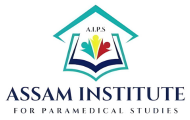Practical skills meet healthcare industry demands

Practical Skills Aligning with Modern Healthcare Industry Demands Effectively
Developing practical skills in paramedical training ensures professionals meet modern healthcare industry demands. Hands-on simulations, clinical practice, and technology-driven learning bridge the gap between theory and real-world application. This prepares paramedics to deliver efficient, accurate, and patient-centered care, enhancing competency, confidence, and adaptability in fast-evolving healthcare environments.
The Importance of Hands-On Learning in Healthcare
Hands-on learning in healthcare equips students with real-world experience, enhances clinical decision-making, and strengthens critical thinking. By practicing in simulated or real environments, learners develop confidence, technical competence, and empathy—essential qualities for delivering safe, effective, and compassionate patient care.
The Importance of Hands-On Learning in Healthcare
Hands-on learning in healthcare is essential for developing practical skills, critical thinking, and confidence. It bridges the gap between theory and real-world practice, allowing learners to gain experience, improve patient interaction, and deliver high-quality, safe, and compassionate healthcare services.
Building a Workforce for the Future of Healthcare
Building a workforce for the future of healthcare requires continuous training, innovation, and adaptability. By fostering digital literacy, interdisciplinary collaboration, and patient-centered skills, healthcare professionals can effectively respond to emerging challenges. Preparing today’s learners ensures a competent, compassionate, and resilient workforce ready to meet tomorrow’s healthcare demands.
Collaboration and Teamwork in Clinical Practice
Collaboration and teamwork improve communication, efficiency, and overall patient care.
1. Improves Patient Outcomes: Effective teamwork ensures coordinated care, reducing errors and improving overall patient safety and satisfaction.
2. Enhances Communication:Enhancing communication in clinical practice ensures clear, accurate, and timely information exchange among healthcare professionals. Effective communication reduces misunderstandings, prevents medical errors, and promotes teamwork. It also strengthens relationships, supports coordinated care, and ensures that patients receive consistent, safe, and high-quality healthcare services across all levels of treatment.
3. Encourages Shared Decision-Making:Encouraging shared decision-making in healthcare fosters collaboration between professionals and patients. It values diverse expertise and patient preferences, ensuring care plans are well-informed and personalized. This approach builds trust, enhances communication, and leads to better treatment adherence, improved satisfaction, and more effective, patient-centered healthcare outcomes.
4. Builds Trust and Respect: Building trust and respect in healthcare teams creates a positive, supportive work environment. When professionals value each other’s roles and expertise, collaboration improves, and communication becomes more open. This mutual respect enhances teamwork, reduces conflicts, and ultimately leads to safer, more compassionate, and effective patient care.
5. Increases Efficiency: Collaboration in healthcare supports learning and growth by fostering knowledge sharing and mentorship among professionals. Team interactions expose individuals to diverse experiences and best practices, enhancing clinical skills and confidence. This continuous exchange of ideas promotes professional development and ensures high-quality, evidence-based patient care across all settings.
6. Supports Learning and Growth: Working in teams allows knowledge sharing and continuous professional development.
7. Strengthens Problem-Solving Skills: Collaboration in healthcare strengthens problem-solving skills by bringing together diverse expertise and perspectives. Team members analyze complex clinical situations collectively, leading to more effective solutions. This shared approach enhances critical thinking, encourages innovation, and improves decision-making, ultimately contributing to better patient outcomes and more efficient healthcare delivery.
8. Promotes Holistic Care:Promoting holistic care means addressing patients’ physical, emotional, social, and spiritual needs. It encourages healthcare professionals to view patients as whole individuals rather than focusing only on illness. This approach enhances healing, strengthens patient relationships, and ensures compassionate, personalized care that improves overall well-being and long-term health outcomes.
